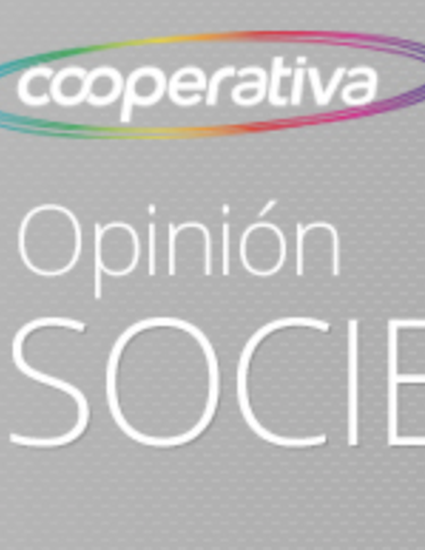
Popular Press
Necesitamos cuidarnos y cuidar. [We need to care for ourselves and others.]
Cooperativa
(2020)
Abstract
It is the most stressful end of the week that many of us have lived in years or even in life, but it is coming even more. The uncertainty regarding a possible “biological tsunami” is affecting us in an unprecedented way. Like a Hollywood movie about a disaster, the opening scenes are of scientists discovering a threat, which through some calculations, leads the team to go to sleep for days at work, as they try to convince their bosses, and then the politicians, about the danger of an aggressive and deadly virus.
Soon, some of his colleagues in hospitals and clinics begin to develop symptoms. Before long, an entire city is under military control in a blockade that lasts for months. The world is just beginning to pay attention to them, but it is too late. Outbreaks in many cities, both large and small, and the wealthy neighborhoods of those privileged people who travel a lot, are the epicenter.
Most of you can imagine the narrative that would unfold in a movie, but in it we often don't know who is trying to get on with life while the catastrophe is unfolding.
In the generic script for these films, a man with implicit or demonstrated superpowers (dramatic, uplifting, and reassuring music signal) comes to the rescue. That is the "American dream", now exported worldwide.
Hidden from this narrative are all the invisible secondary actors, who constitute the community's response to the disaster. It is a community response that we need at this time. For many of us, getting on with our lives and work becomes a challenge, it is not about the heroic struggle shown in a movie.
For knowledge workers, health professionals, scientists, teachers and doctors, those who work in a building, a classroom or laboratory, the task is to try to work remotely (again a privilege that shows inequality in countries like Chile) , at the same time, to guide teams, students, colleagues and employees.
The amount of information received is dizzying, therefore stressful decision making. Most people responsibly try to replace what they do on a daily basis with similar activities and goals.
Most face the emergency assuming that it is an exceptional situation, that it can slow things down, but that it will ease and return normality to their lives.
This, while many others still live as if they were exaggerating, or conscious, but without options since their work does not allow them any flexibility.
Meanwhile, policy makers and governments, with little legitimacy and trust on the part of the population, struggle to communicate during the crisis in a coherent, transparent, clear and reassuring way, but their leaders seem lost in the crisis.
The futile attempt to move forward with deadlines, and at the same time add the tasks and challenges that a quarantine or a blockage poses, as if the crisis were not really serious, seems psychotic. The exponential growth of the virus continues.
Some of us are scared and, like the scientists who alert their bosses in the movie, we are exhausted.
It is a time when those who appeal to the assertion of authority seem to be the most lost, least able to affirm the seriousness of the threat and the need to act immediately.
Caring for people requires a determined assessment of what is really required in a period of uncertainty and danger. Courageous leadership is required. It is the moment when we need to give ourselves permission not to comply with everything; It is the time to take care of yourself first and therefore others.
This virus forces us to rethink priorities and prepare for further instability. We should not continue competing as if the situation had remained the same, or as if the prize at the end of the race had any meaning. We should breathe and give ourselves some slack because we are going to be in crisis mode for a long time. These are the times when we need to lead with care, courage, and love for both ourselves and others.
We cannot continue doing, competing and fulfilling the normal objectives. This is physical isolation, but it is not social. We will stay connected. The ways of making community with digital media will take strength. We will take canvas on the balconies of the buildings. I will hang my paintings from the balcony. A literature of quarantine will flourish. Leaders will emerge who are capable of understanding the situation and inspiring us. We will have scientists who will not be afraid of people and will translate knowledge for everyone. And many of us will be unmarked, but attentive and productive, showing our faces, listening and learning. Our brother doctors and nurses will be on the front line. I am optimistic because we have nothing else in this crisis.
Keywords
- disasters,
- covid-19,
- coronavirus,
- ethics of care,
- quarantine
Disciplines
Publication Date
Spring March 22, 2020
Citation Information
Gonzalo Bacigalupe. "Necesitamos cuidarnos y cuidar. [We need to care for ourselves and others.]" Cooperativa (2020) Available at: http://works.bepress.com/gonzalo_bacigalupe/37/
